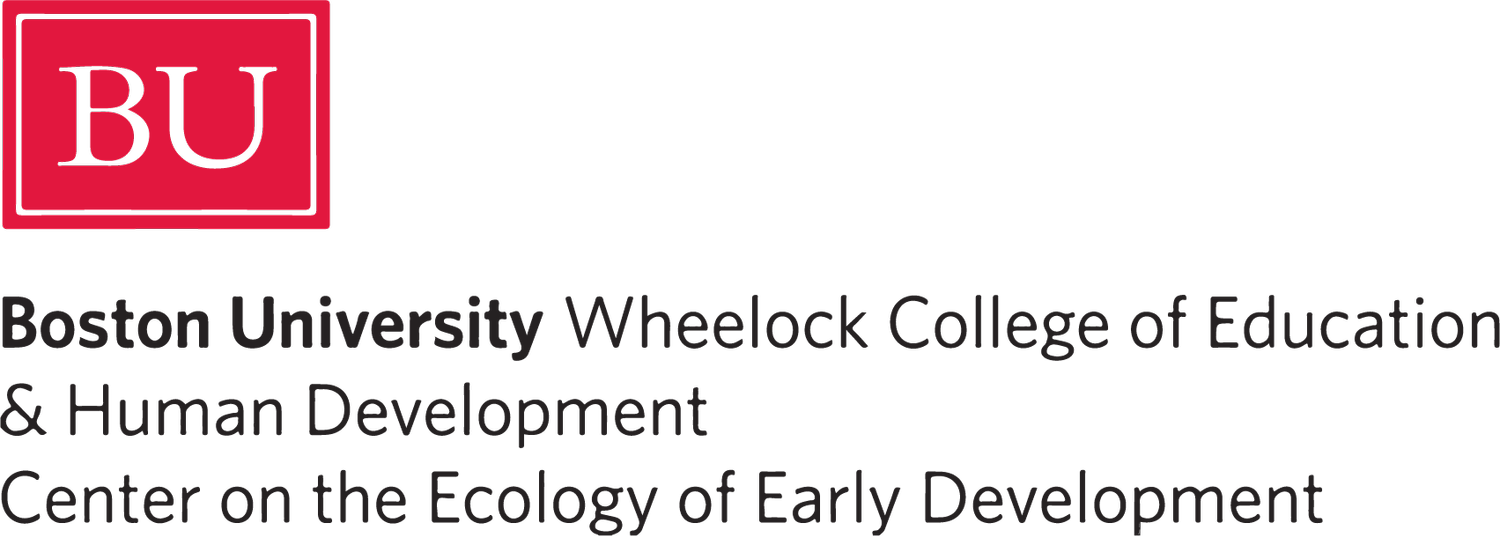Growing and Thriving
Researchers at CEED conduct applied research using a strengths-based equity impact framework that examines young Black children’s positive growth and development within education, health, and community settings to promote the thriving and academic success of Black children and their families.
RISER
The Researchers Investigating Sociocultural Equity and Race (RISER) Network, co-founded by Stephanie M. Curenton of Boston University and Iheoma U. Iruka from the University of North Carolina at Chapel Hill, constitutes a powerful collaboration amongst seasoned, mid-level, and emerging scholars. This network's primary objective is to undertake applied child development research with a specific focus on fostering the positive development of Black children. Moreover, RISER aims to effectively distribute research findings to policy makers, with the ultimate intention of dismantling prevalent disparities in education and health. By promoting the thriving and academic success of children, the network seeks to ensure greater equity and equality for all.
The Impact of Racism on the Development and Learning of Young Children, Prenatal through Early Childhood
The Impact of Racism on the Development and Learning of Young Children, Prenatal through Early Childhood: Challenges and Future Directions in Developmental Science project aims to critically examine the impact of implicit and explicit racism on children's development and learning, including how various forms of racism at both the individual-interpersonal and cultural-structural levels limit racially marginalized families’ and children’s optimal development and their ability to thrive.
Through various dissemination efforts and engagement, the project seeks to:
(1) raise awareness about the effects of various forms of racism on the developmental experiences and outcomes of young children, prenatal through early childhood (prenatal through age 5);
(2) highlight the cultural wealth of racially marginalized communities, families, and children in response to oppressive systems;
(3) describe the social determinants of health and development (e.g., social, emotional, physical, environmental, cognitive, spiritual, and racial-ethnic identity) for racially marginalized children and families within these early stages of development;
(4) summarize empirical evidence supporting effective policies, programs, and practices that can protect racially marginalized children and their families from harm and trauma, promote their health, wealth, and learning, and preserve their cultural heritage and identity.
Racism in the Early Years 2023 Convening
On October 31st, 2023, CEED hosted the Racism in the Early Years: Transformation Rooted in Protection, Renewal, and Liberation 2023 Convening. It was a meaningful conversation with shared learning and dreaming. Here you will find links to presentations and resources from the convening to continue these conversations.
Resource Document
Digitial Recap by Yen Azarro
Presentations
Talkin’ Black: White Early Childhood Educators’ Beliefs about African American English
Dr. Xigrid Soto-Boykin
Dr. Kristen Copeland and Julietta Ladip
Literacy for Social Justice, Equity Diversity, and Inclusion: Curriculum & Book Audit
Dr. Ximena Franco-Jenkins
Dr. Sihong Liu
Toxic Pathways: Vicarious and Environmental Racism on Black Youth in Early Childhood
Dr. Myles Moody and Dr. Lacee Satcher
Elevating Equity
CEED is partnering with the Center of Excellence for Children’s Behavioral Health at Georgia State University's Georgia Health Policy Center to consider the ways that Black mothers’ strengths, along with their social and neighborhood supports, disrupt the negative impacts of environmental racial bias on their and their children’s health and wellbeing. Environmental racial bias is the social climate of a geographic area regarding race and racism. Secondary data analyses integrated with participatory methodology seek to illuminate strong protective factors across Black families and neighborhoods in order to identify potential areas for future programming, strengthening, and intervention.






